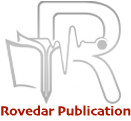Ailin Mesbah, Mitra Zeraatpishe , and Zahra Zohoorian Vahid Baghban
Department of English, Mashhad Branch, Islamic Azad University, Mashhad, Iran
Corresponding author: Mitra Zeraatpishe, Department of English, Mashhad Branch, Islamic Azad University, Mashhad, Iran. Email: mitra.zeraatpishe@yahoo.com
Abstract:
Introduction: Individual differences arise from several factors like affect, behavior, reflective thinking, cognition, and motivation which can crucially bring differences among learners. Ego state and learning style are among these differences. The present study aimed to investigate the interrelationships of Iranian EFL learners’ reflective thinking, ego state, and learning style. Methodology: To conduct the study, 200 male and female English learners from different universities in Mashhad, Iran, were selected based on convenience sampling. The instruments of the study were three questionnaires, namely Reflective Thinking Questionnaire (Kember et al., 2000), Learning Style Questionnaire (Honey & Mumford, 1986b), and Ego State Questionnaire (Hay, 1996). Results: The analysis of data revealed that the proposed model had a perfect fit with the empirical data after modification. Moreover, the results of the Pearson correlation indicated that total learning style correlated positively and significantly with students’ reflective thinking. Moreover, learning style correlated positively and significantly with internal parent and internal adult. Conclusion: The findings indicated that internal adult is a significant positive predictor of all four learning styles.
1.Introduction:
It is a common observation that people differ from each other, yet it is less obvious why and how they differ. The field of study that deals with individual and group differences in human behavior is called differential psychology. As Revelle et al. (2011) believe, individual differences arise from several factors, such as affect, behavior, cognition, and motivation which in turn are affected by biological causes and environmental events. One of the factors that can crucially bring differences among learners is their ego state. Erikson (1968) posited that ego state is a component of individual differences as the personality component which undergoes a time of special ascendancy during the adolescent years. Ego states are a set of related behaviors, thoughts, and feelings that make up our personality at a given time. Berne (1961), the founder of Transactional Analysis, the theory behind ego state, understood that persons adopt three certain sets of thoughts, feelings, and behaviors at different moments of time. He called these sets of ego states: child, adult, and parent ego states. Child is the first stage of development and is crucial for the first five years of personality development. The child is similar to the Freudian concept of identity operating on the pleasure principle, unconscious, aimed at gratification and fulfillment of needs. Child is about expressing feelings and being intuitive (Berne, 1961). Functionally, the child’s ego-state comprises two aspects, namely The Natural (Free) Child , which is spontaneous, intuitive, creative, and pleasure seeker; and the adapted child , which is compliant and conforms to wishes and demands of others, particularly parents. According to Woollams and Brown (1979), the Natural Child ego state is a spontaneous part of human behavior from infancy to old age. The adapted child ego state represents human response, including negative reaction and deeper hostility.


